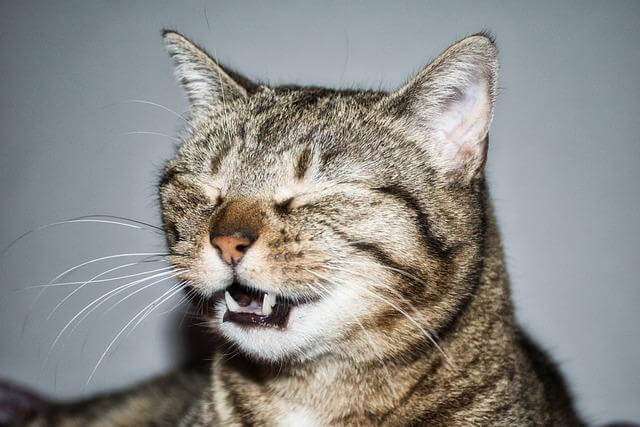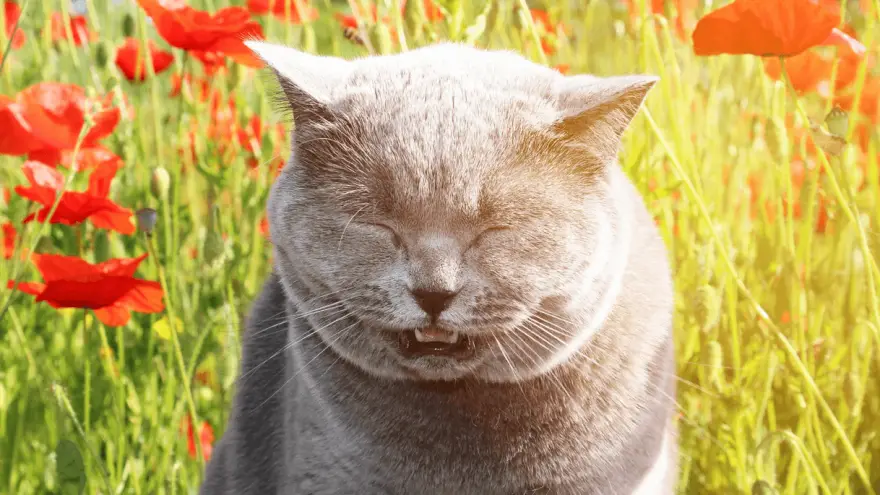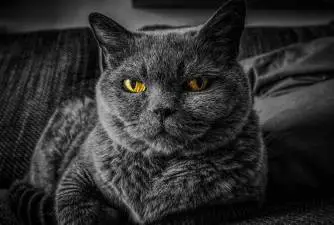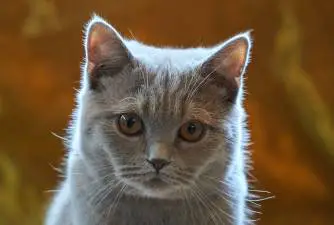Why Is My Cat Sneezing? Should I Be Worried?
07.05.2022.
Cats can exhibit all sorts of weird behaviors, and one example we are not used to seeing too often is sneezing. If you have ever heard your cat sneeze, you already know it is the cutest sound ever. However, after the initial wonder, one question pops into our minds, "Why is my cat sneezing?" Most cat owners want to know if sneezing is something to worry about. Luckily, in most cases, sneezing is nothing serious. Here are a few things you should know about cat sneezes.
Cat sneezing causes
There are many possible causes for your cat's sneezing; however, your veterinarian will first look at your cat's symptoms to determine what the problem is. Sneezing is a common symptom of infection. If the vet suspects an infection, they may take a swab from the cat's mouth, throat, eyes, or nose and send it to a laboratory for testing. Allergic reactions in cats can also be triggered by inhaled irritants or allergens. Here are some of the most common causes of your cat's sneezing.
RELATED: DIY: How To Express Your Cat's Anal Glands
Typical cat sneeze
Some cats sneeze as a normal part of their daily routine. A few sneezes from your cat, followed by their usual behavior, are likely not a cause for alarm. You should, however, keep an eye on them to make sure the sneezing doesn't persist further.
"Reverse sneeze," which sounds like a honking noise and looks like a sneeze or a coughing fit, may also occur in some cats. In spite of its alarming appearance, reverse sneezing is a perfectly normal bodily reaction. It is not a cause for alarm on its own.
Respiratory issues
Similar to how human upper respiratory infections cause sneezing, cats can also experience sneezing when they are sick. There are viruses, pathogens, and bacteria that can infect cats, which may cause them to sneeze when they have allergies or a cold.

RELATED: Why Does My Cat Stink? Should I Be Worried?
A trip to the vet may be in order if your cat starts sneezing excessively for a prolonged period of time or exhibits any other symptoms of illness. Most cats get respiratory infections at some point in their lives. They should be able to return to their usual self after taking an antibiotics course.
Feline herpes
There are many similarities between feline and human herpes. If your cat got a herpes diagnosis, don't be concerned. Neither can be passed from one species to the other. Feline herpes, like human herpes, can appear in different stages of your cat's life, and one of the symptoms is sneezing.
While stress is a common trigger for cat herpes flare-ups, other illnesses can also contribute to these uncomfortable episodes. If your kitten is frequently sneezing, it is possible that they have feline herpes, which is currently flaring up.
RELATED: Why Do Cats Vomit? Should I Be Concerned?
FIV
FIV stands for Feline Immunodeficiency Virus. Like HIV in humans, it is not contagious between two species. Feline immunodeficiency virus (FIV) has been linked to an increased risk of respiratory infections in felines.
Sneezing isn't the only symptom of an FIV-infected cat. Your veterinarian can test your cat and tell you if your cat has this condition.
Oral disease
Sometimes, sneezing may be a symptom of oral issues, especially in cats with more extensive dental disease. There are many ways that dental disease can cause sneezing and other respiratory symptoms in the mouth.
RELATED: The 4 Most Common Type Of Cancer in Cats & Their Treatment
Cats with severe dental disease can end up with no teeth due to decay. In order to restore their oral health, they may also require extensive cleaning and treatment. Consult your cat's veterinarian if you have any questions about how to treat dental disease in felines.
Foreign object inhalation
A cat can inhale an object accidentally that can become lodged in its nose. This issue is not as common in cats as it is in dogs. The cat's nasal passages can become blocked as a result. Cats with blocked nostrils can have trouble breathing through their noses even if they are able to breathe normally through their mouths. That will cause severe stress to the cat.
This can cause your cat to sneeze rapidly in an attempt to remove the object from its nose. If you can't see the object, try looking up your cat's nose. If you see an object there, immediately bring your cat for a vet appointment.
RELATED: Is Your Cat Panting? Here's What It Might Mean
When should I call the vet?
As long as your cat only sneezes a couple of times a week, you may not need to do anything more than keeping an eye on them for changes. If your cat shows any of the symptoms we mentioned above, you should take them to the vet right away.
An appointment with a veterinarian is most likely required to get an accurate diagnosis and treatment plan for your cat's unusual sneezing. In the event your cat stops eating, a vet visit is especially critical. As a result of a loss of smell and/or taste, as well as the inability to breathe out of the nose, cats can lose their appetite. Some conditions can cause difficulty swallowing as well.
A cat's body feels the effects of starvation after just 2-3 days of not eating. In contrast, humans can go without food for weeks. There is a serious and even life-threatening condition known as hepatic lipidosis that can result from not eating. It is common to begin treatment with intravenous fluid and nutritional support, often followed by other necessary drugs such as antibiotics and anti-nausea medications.
RELATED: How Long Can a Cat Go Without Eating? When To Visit Your Vet?
World Cat Finder Team







Share